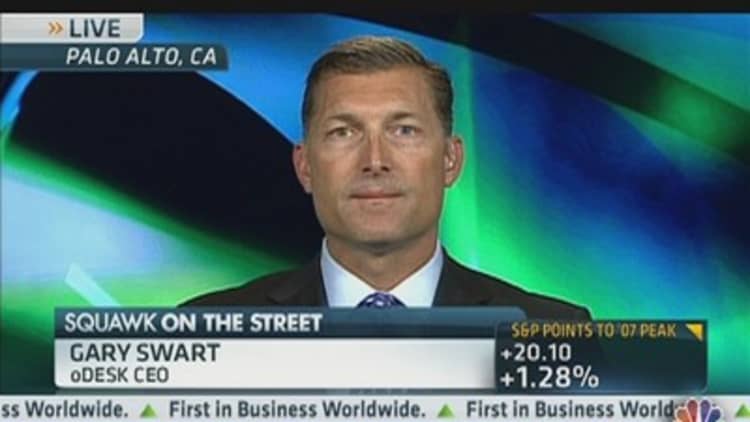When Misha Rubin and his husband decided to adopt, they expected some ups and downs going through the process. But even they were surprised by how things played out last November.
They had just landed in Morocco for a vacation when they got a call saying the twin girls they were adopting had arrived ahead of schedule. Five flights later, they were back in Florida, only to find that the girls, born at 33 weeks, needed to stay in the hospital for an undetermined amount of time.
Rubin, a partner at Ernst & Young LLP, arranged with his team to work remotely from Cape Coral for a month until the girls could travel to New York. "Everybody was very supportive. The message to me was, 'Do whatever you need to do,' " he said.
Rubin has since asked his managers to limit him to assignments with no travel, and he tries to avoid too many evening events because he wants to put the girls to bed at night.

Rubin's situation may be unusual. But his attitude toward flexible work time is not, according to a study released today by the Working Mother Research Institute. Companies like Yahoo! and Best Buy may be terminating their flexible work arrangements, but some 77 percent of the men surveyed said their company offers flex-time arrangements, and 47 percent are using them.
"Men are too often an afterthought in conversations about workplace flexibility," said Karyn Twaronite, global diversity and inclusiveness officer for EY, the parent of Ernst & Young LLP and the sponsor of the study.
Read MoreShift to independent labor signals 'flex' economy
Certainly there is demand for flexibility. In a 2013 study by the Pew Research Center, 56 percent of working women and 50 percent of working men said it was somewhat or very difficult for them to achieve the right balance.
Employers are starting to respond. In the Working Mother Research Institute study, 60 percent of all respondents said their employers support flex work, though 26 percent said their employers could do more.
Read MoreFor workers, less flexible companies
Although men are increasingly taking advantage of such options, the impact of flex-time arrangements on men's and women's careers can be very different.
In a study of flex-time arrangements published earlier this year, researchers asked 650 people to read transcripts of what they said were conversations between a human resources official and an employee. Some of the conversations included requests for flexible work arrangements. Almost 70 percent of the readers said they would respond positively if a man were asking for flex time to care for children, compared with 57 percent who would approve such a request from a women. Some 15 percent of the readers also rated women making those requests as less committed to their jobs, but only 3 percent interpreted the men's requests that way.
Read MoreOffice smackdown: parents vs. childless workers
Another study published in 2013 found that mothers experienced negative consequences after asking for flexible schedules, like not being assigned high-profile projects.
But Twaronite contends that what she sees in EY's relatively young workforce is a harbinger of attitudes to come. For example, EY started talking about offering paid paternity leave in 2002.
"People thought there was no way men would take it," she recalled. But EY began offering paid paternity and adoption leave anyway, and Twaronite says male employees are increasingly open to the idea. Every year now, between 500 and 600 women—and about the same number of men—in the U.S. take paid parental leave from the company, she said.


